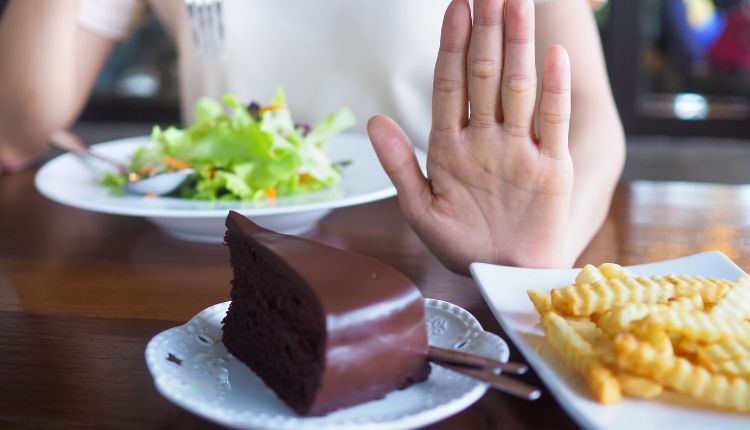9 Foods to Avoid While Traveling
One of the exciting parts about traveling is trying new foods and experiencing life in someone else’s shoes. You may be looking forward to something unavailable where you live. Unfortunately, some of the items you want to sample could be unsafe and cause common foodborne illnesses, which would put a damper on your trip.
Here are nine foods to avoid while traveling to reduce your chances of getting sick.
1. Raw Selections
Anything served raw should be an immediate no-go. Everything from sushi to fruits and vegetables can be contaminated with germs. Even meats cooked with citrus juice or vinegar could harbor viruses or bacteria. Here are other things you will want to look out for:
- Avoid platters of cut fruits and veggies since they could be contaminated during preparation.
- Fresh salads can cause sickness since germs can’t be washed off and finely cut veggies provide lots of surface room for bacterial growth.
- Sauces and fresh salsa can contain raw fruits or vegetables that contain bacteria.
2. Street Food
Street food may be part of your travel destination’s culture. A lot of food offered on the street is safe, but there are certain things you should watch out for. Ensure the stall is clean, see if food and trash could contaminate your meal, and determine how many people are in line. Typically, more customers mean the food is likely to be safe.
You should also ensure the cook covers the food. It’s more likely to be contaminated if it’s not.
3. Bushmeat
Certain areas of the world will offer local game like bats, monkeys or rodents. Bushmeat can spread diseases such as Ebola from animals to humans. Make sure any meats are clearly stated in the description, or ask what’s included before buying when considering what to eat.
4. Frozen Items
Frozen foods seem like an unproblematic option but can be high-risk. Freezing and dethawing can produce harmful bacteria.
Listeria is common in water, soil and farm animals like chickens. It can grow in cold temperatures, making it a risk even with refrigerated and frozen foods. About 1,600 people get listeriosis a year, and 260 die from it. Many uncomfortable symptoms come along with it, like fever, weakness and vomiting. You will want to avoid this risk in any way you can.
5. Buffets
Buffets always pose the risk of being unsanitary. The food may sit out for a long time, leading to bacterial growth. It is best to skip buffets no matter where you are. It will save you weeks of sickness either from the food or overindulging.
6. Ice Cream
Unfortunately, this delicious treat should be left out of your traveling diet. It poses a lot of similar concerns as frozen foods. You may be in the clear if you go to a well-known chain, but don’t buy ice cream from small stands or places with no lines. Sorbet is more acidic and has fewer bacteria than ice cream, so it’s a better choice if you’re craving something sweet.
7. Tap Water
Tap water can be hazardous to drink since it is not disinfected. Consider this when drinking, brushing your teeth and showering. The same goes for fountain drinks, ice and freshly squeezed juice, which can all be made with tap water.
8. Deli Meats
Deli meat and cheeses are food items to stay away from while traveling. The rule you should follow is that it is probably a bad idea if it is not coming to you fresh off the grill. You don’t know if the meats have been left out in cases for hours. The meats can carry bacteria that will not have you feeling your best later on.
9. Fried Rice
When you order fried rice, you typically get the option to get veggies, pork, shrimp, chicken or beef mixed in with it. Although it is delicious, the chances of bacteria or common foodborne illnesses getting picked up are higher since the meat can get left over and flash-fried. Try to choose a safer side option, like soups.
Stick With Safe Options
This may seem like a lot of don’ts, but there are plenty of safe options to eat. You will want to stick with foods that are served hot because heat kills most germs. Room-temperature items can be contaminated.
Foods that are dry or packaged are another safe option. Germs require moisture to grow, so potato chips and popcorn are perfect snacks throughout the day. Any food in a package sealed from the factory to your hands is safe when not opened by another person. This includes cans and packets.
Drinks in a bottle or can that has not been opened are your best bets. This can be soda, sparkling water or milk. If you consume milk, ensure it is pasteurized in a sealed container. Alcohol and hot drinks are also safe since most liquor or steaming hot beverages kill germs.
Stay Safe and Healthy on Your Trip
Having limited food options is frustrating when traveling, but you can still enjoy eating. Remaining happy and healthy is much better than regretting your food choices and getting sick on your trip.



Comments are closed.